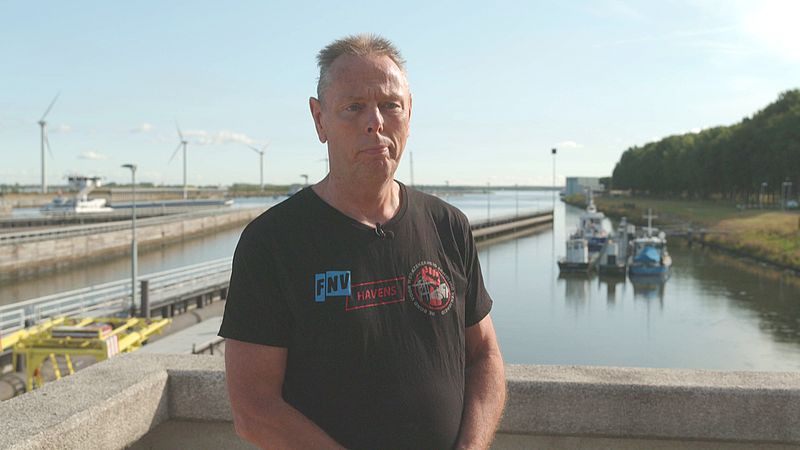More than 1 million households have a hard time making ends meet. This number is expected to increase rapidly if inflation continues to rise. “Everything that was agreed in the collective labor agreements at the beginning of this year has long since been overtaken by inflation,” says Niek Stam of FNV.
Inflation in the Netherlands exceeded 10 percent last month. It is becoming difficult for more and more Dutch households to make ends meet financially. Groceries, fuel, rent and gas prices, everything is quickly becoming more expensive.
‘Do we find this acceptable in the Netherlands?’
Trade unionist Niek Stam therefore wants more to be done to preserve purchasing power for families. On behalf of the FNV, Stam is negotiating new collective labor agreements with large companies in the port of Rotterdam.
“We have to ask ourselves whether we find it acceptable that a Dutch employee earns a lot less due to inflation, while he or she does not work less. That is socially unfair and also bad for the economy.”
Automatic price compensation back in the collective labor agreement
According to Stam, an effective means of preventing people from ending up in poverty is the so-called automatic price compensation (APC). This mechanism means that wages rise at exactly the same rate as prices. “If the Central Bureau of Statistics calculates that inflation is 10 percent, then wages will rise by the same percentage,” explains Stam.
This is not only good for the employees, continues the FNV director. “Employers also benefit, because in years of low inflation wages hardly have to rise or even not at all.”
also watch
Economists wary of reintroduction
The automatic price compensation is not new. In the 1970s, the link between wages and inflation was part of almost all collective agreements. But many economists are hesitant about the possible consequences of a reintroduction.
“We then saw that it kept pushing each other up, resulting in a wage price spiral,” says ING economist Bert Colijn. “That ultimately resulted in a major recession in which many people also lost their jobs. That is the risk you can run.”
Company profit, employee backward
But Niek Stam contradicts this. “We have included such a link in the collective labor agreements at some companies in the ports for decades, and it works fine. Recently, mega shipping company Hapag Lloyd was added, with an APC of 3 years.”
FNV Havens is also in talks with a number of other companies, including container giant Maersk-Line. And that’s a good thing, Stam thinks. “Maersk made a profit of 37 billion euros this year, which is really an astronomical amount. It would be very strange if the employees did decline rapidly.”
also watch
‘Renegotiating every year is a hassle’
Negotiating wage increases every year is also quite a hassle, according to the trade unionist. “It might sound sexier if you say, ‘We dragged out a 5 percent pay rise.'”
“But everything that was agreed at the beginning of this year in all kinds of collective labor agreements has long since been overtaken by inflation.”
‘Wages must go up’
Economist Bert Colijn is particularly concerned about the duration of the current economic crisis: “It is really serious. We have very high inflation, wage growth is lagging behind and that means a significant drop in purchasing power. People really notice it in their wallets .”
Much is determined by global developments that we cannot do much about in the Netherlands, emphasizes the economist. There is therefore no simple solution for the loss of purchasing power, according to Colijn: “Wages have to go up, but without a broad reintroduction of the APC. And lower incomes will have to be additionally supported, which seems to be the best solution at the moment.”


